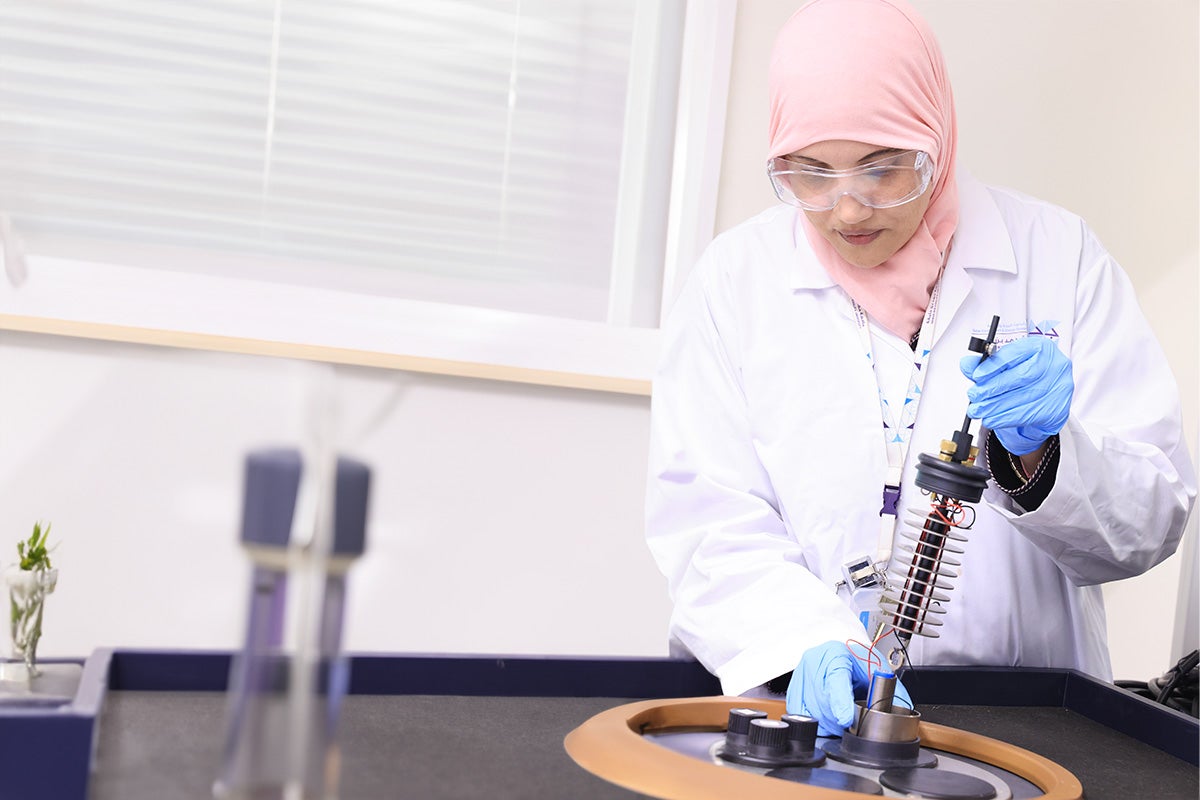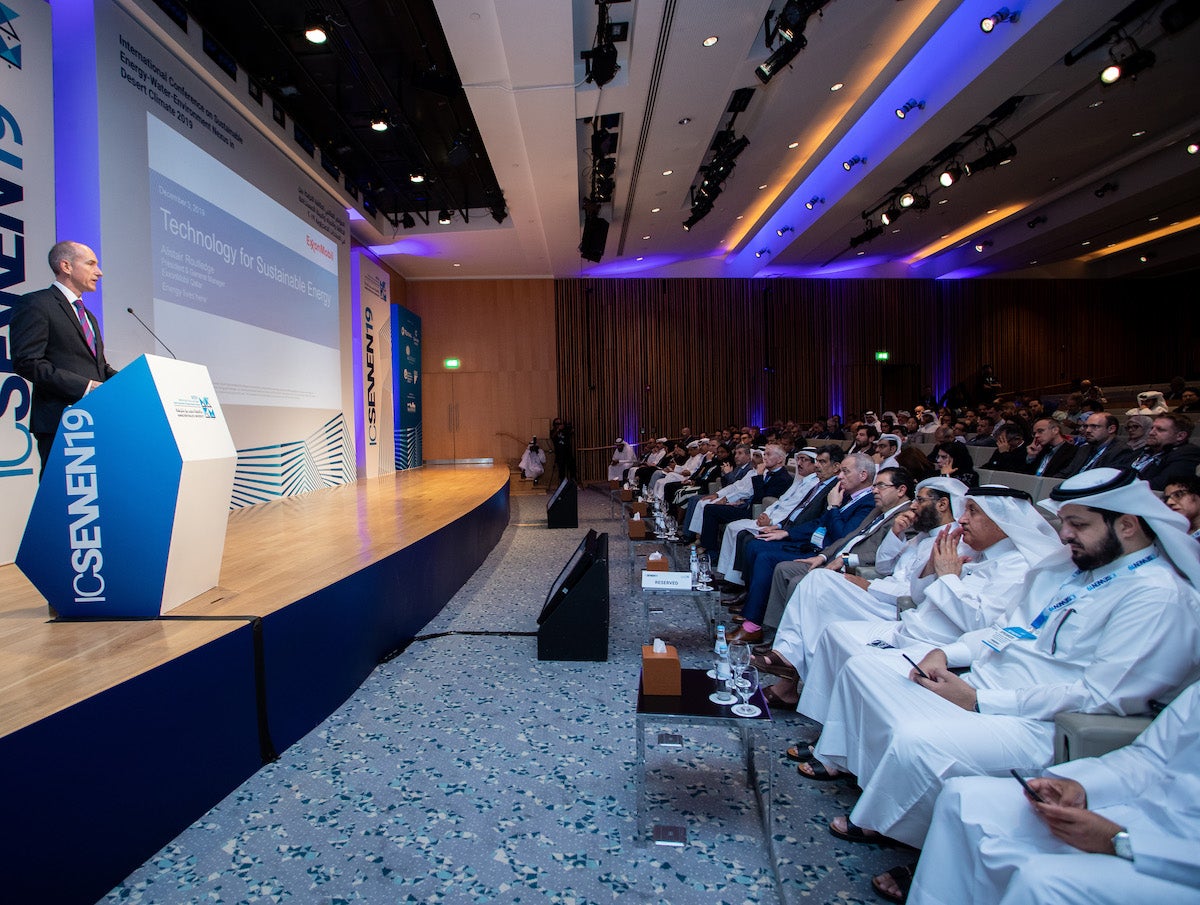By Dr. Kenza Maher, Noora S. Al-Jaidah, and Yahya Zakaria

Rechargeable lithium-ion batteries (LIBs) are used in portable electronic devices such as laptops and cell phones. Their popularity is owed to their remarkable characteristics, including high energy density, long cycle life, and low self-discharge rate. In time, the automotive industry also began to take notice of LIBs' potential as a power source for electric vehicles (EVs). The first commercially available EVs with lithium-ion batteries were introduced in the late 2000s. Since then, the market for electric vehicles has grown significantly.
In recent years, there has been a surge in demand for lithium-ion batteries, driven largely by the growth in the electric vehicle market and increasing use of renewable energy sources like solar and wind power. This surge in demand has led to the widespread utilization of LIBs across various applications, ranging from smartphones and laptops to electric vehicles and grid-scale energy storage systems. The increased demand for LIBs has led to significant advancements in battery technology. Researchers and manufacturers have focused on improving crucial aspects such as energy density, cycle life, safety, and cost-effectiveness. These efforts have resulted in notable achievements, enabling LIBs to deliver higher energy densities, longer cycle lives, improved safety features, and reduced production costs.
Overall, the history of lithium-ion batteries has been one of steady growth and evolution, with their use expanding to meet the growing demand for energy storage in a wide range of applications. However, temperature plays a critical factor that affects the performance and lifespan of lithium-ion batteries.
Dr. Kenza Maher and Noora S. Al-Jaidah from Hamad Bin Khalifa University’s (HBKU) Qatar Environment and Energy Research Institute (QEERI), and Yahya Zakaria from Core Labs recently published a research paper entitled "Evaluating the Durability and Safety of Lithium-Ion Batteries in High-Temperature Desert Climates" which won the Best Presentation Award at the International Conference on Energy Storage Science and Technology held in New York on April 24-25, 2023. This achievement highlights the importance and relevance of research conducted at QEERI to the international scientific community and local demand.
The study involved testing four commercially available 18650 lithium-ion cells from four different manufacturers using real-world scenarios. The cells were subjected to accelerated cycle aging for up to 500 cycles at two different temperatures (25°C and 45°C) and calendar-aged at the same temperatures in both charged and discharged states for six months to investigate the effect of aging and temperature on capacity fade and state of health.
The team found that all battery cells demonstrated good cyclability and had a good state of health at both temperatures. However, the capacity loss and state of health of these cells were found to be dependent on the cell chemistry and aging conditions, including temperature. In particular, the capacity loss was more pronounced at the higher aging temperature, indicating the significant impact of temperature on the aging of lithium-ion batteries.
This work provides valuable insights into how temperature and state of charge affect the aging of LIBs and can be used to develop strategies to improve their reliability and safety. Additionally, the study found that different cathode materials in lithium-ion batteries have different levels of susceptibility to capacity and power fade during degradation. The team also found that both calendar aging and cycle aging, as well as cell chemistry, need to be considered in the design and development of these batteries.
The team's research holds relevance not only to the international scientific community but also in the local context. In Qatar, where temperatures can reach up to 50°C in the summer, the durability and safety of lithium-ion batteries in high-temperature desert climates play a crucial role in the advancement of sustainable energy systems. The findings from this research have the potential to enhance the performance of electric vehicles and electric grids, supporting the country's efforts to transition to a low-carbon economy.
The paper, selected for publication in an international journal, will further contribute to the scientific understanding of the aging mechanisms of LIBs, informing policy and regulation on the use and disposal of these batteries. The research conducted at QEERI highlights the institute's commitment to advancing scientific knowledge and developing sustainable solutions for the benefit of society.
The research team at QEERI has been conducting an extensive study on the durability and safety of lithium-ion batteries in high-temperature desert climates. This research is significant given the increasing demand for electric vehicles and energy storage systems worldwide. Understanding the effects of aging on lithium-ion batteries is crucial for enhancing their reliability and safety. For more information, please contact qeeri-communication@hbku.edu.qa




